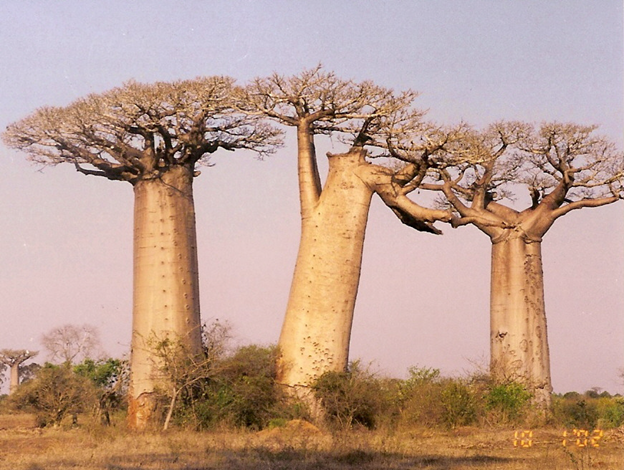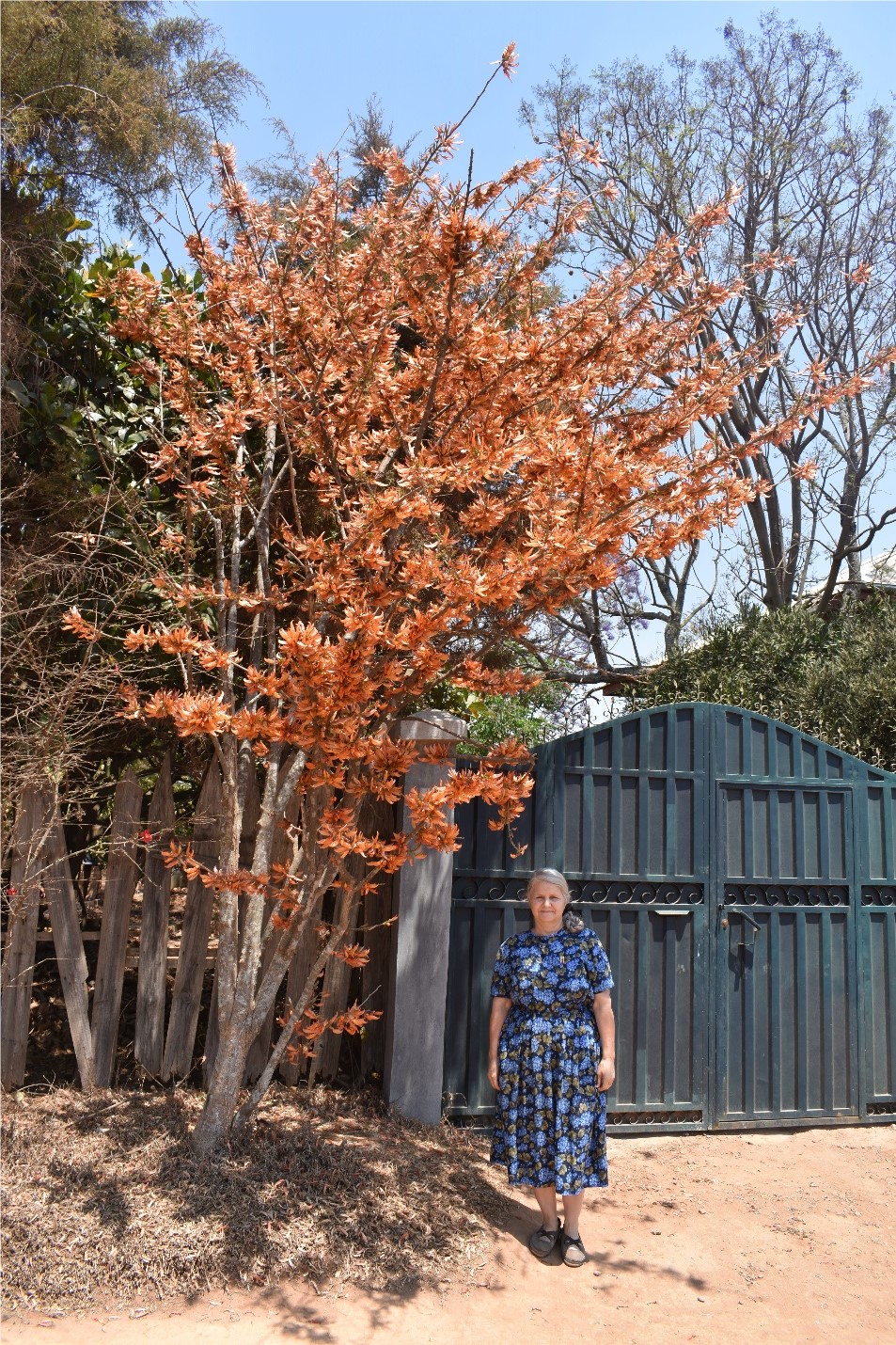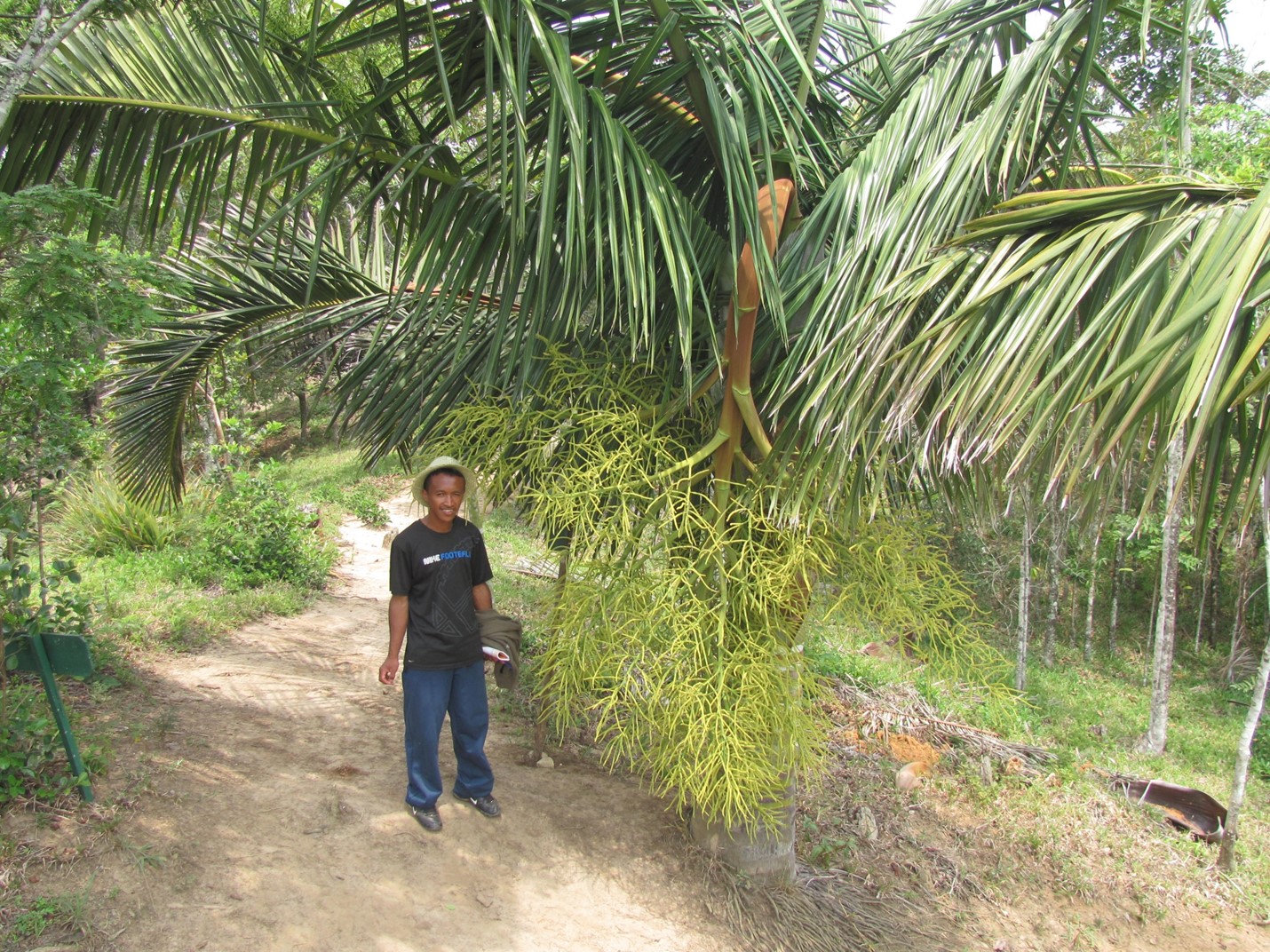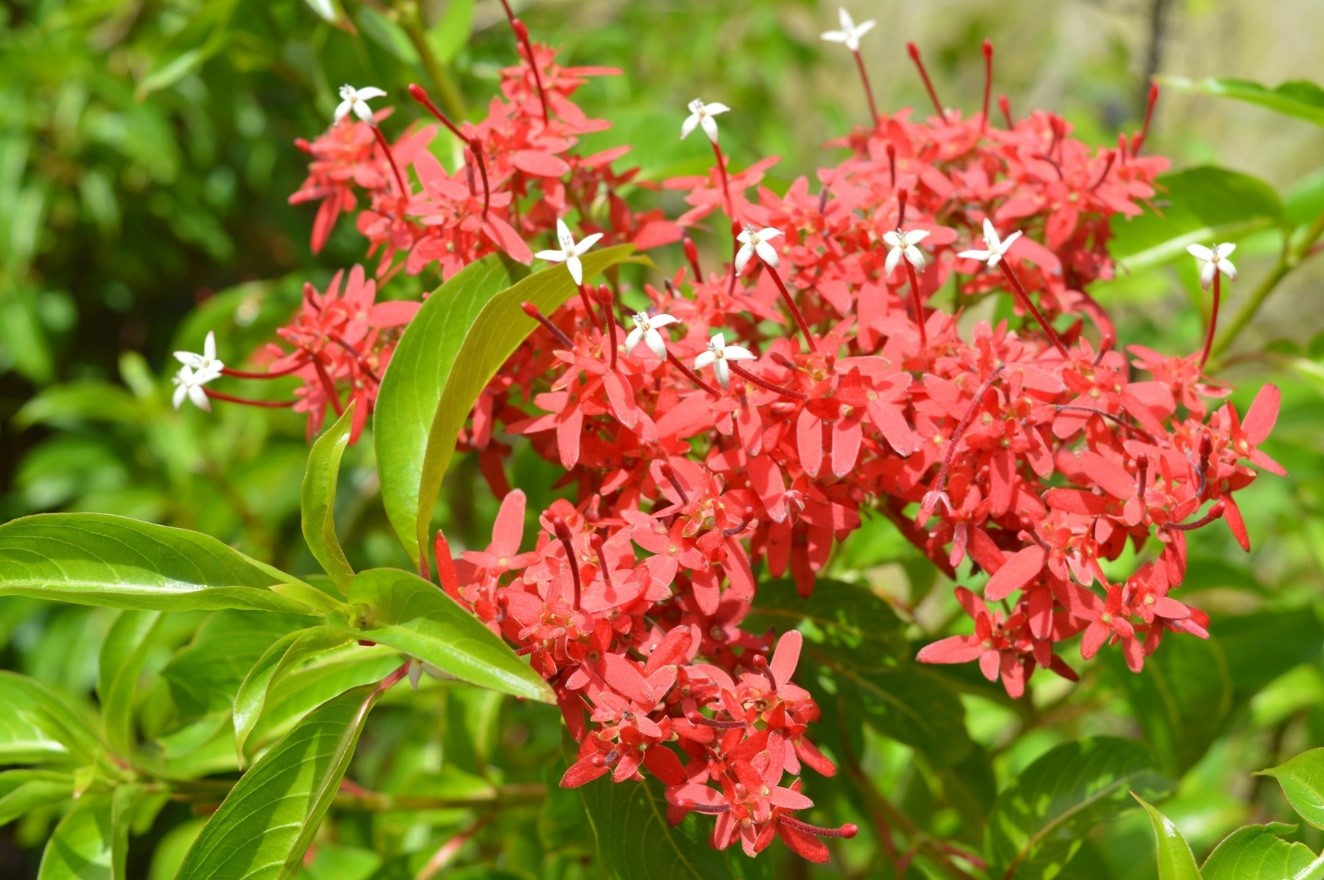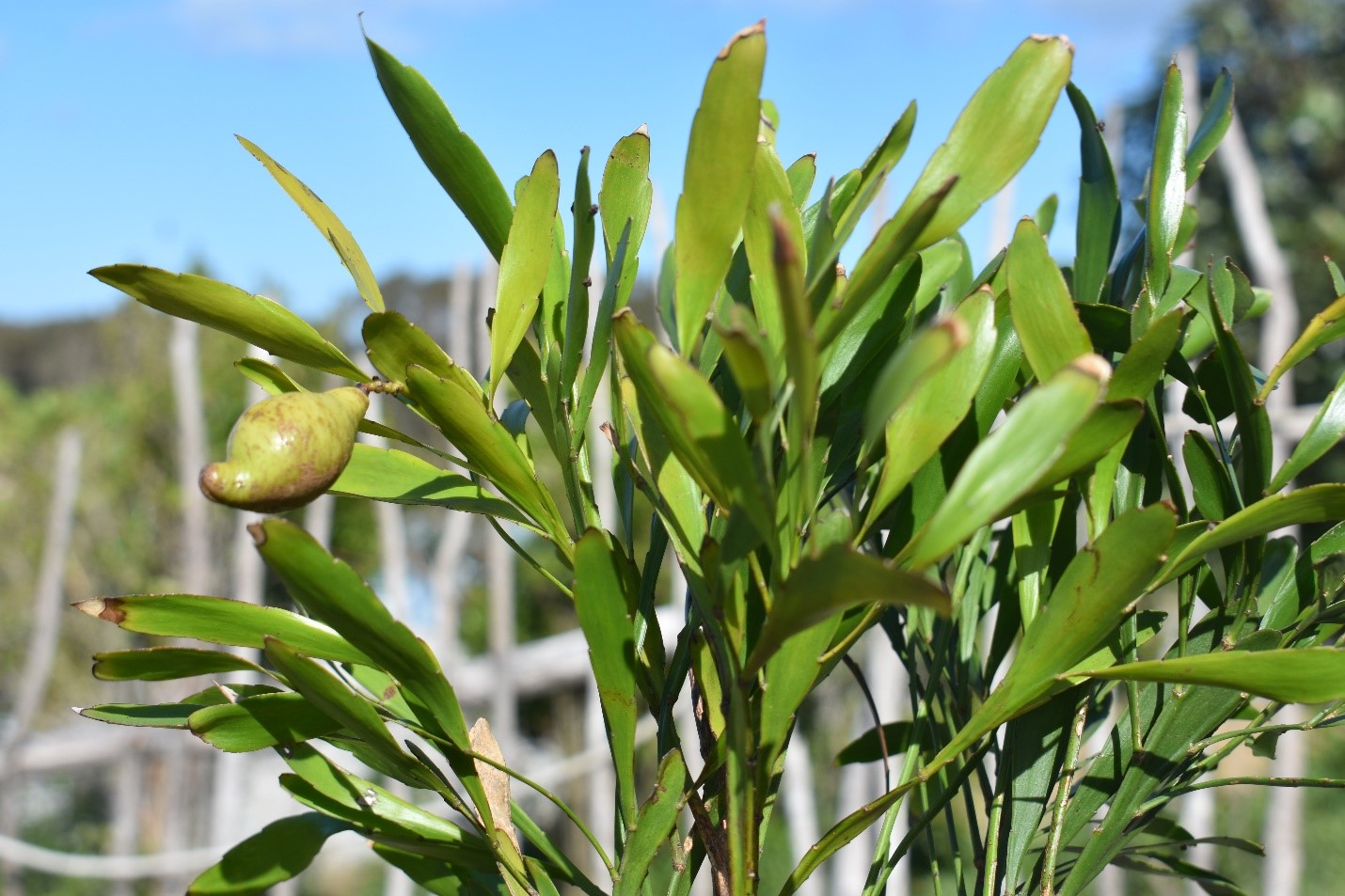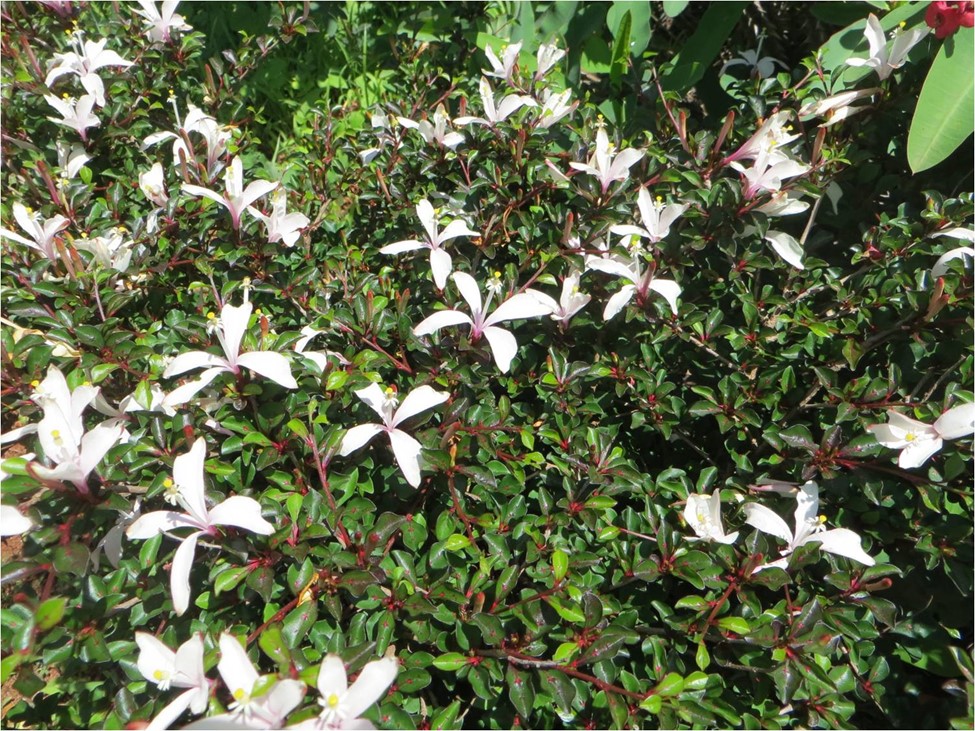A Letter from Dan and Elizabeth Turk, serving in Madagascar
Fall 2022
Write to Dan Turk
Write to Elizabeth Turk
Individuals: Give online to E132192 in honor of Dan and Elizabeth Turk’s ministry
Congregations: Give to D500115 in honor of Dan and Elizabeth Turk’s ministry
Churches are asked to send donations through your congregation’s normal receiving site (this is usually your presbytery)
Subscribe to our co-worker letters
Dear friends,
Spring is here! Birds chirping outside our windows remind us of this every morning along with the beautiful orange flowers of the Chadsia flammea near our house. Many people know Madagascar as the home of lemurs. Madagascar also has many amazing trees that are endemic to the island nation like the Chadsia flammea. Endemic to Madagascar means that they are found naturally only in Madagascar. In other words, if they go extinct in Madagascar, they go extinct in the wild and in most cases completely extinct unless they have been introduced to places outside Madagascar. Thousands of Madagascar’s plants and animals are endangered by destruction of natural forests which continues at an alarming rate.
I work with the Fruits, Vegetables, and Environmental Education Program (FVEE) of the Church of Jesus Christ in Madagascar (FJKM), which, in addition to promoting growing of fruits and vegetables, works to help people appreciate, love and protect Madagascar’s precious biodiversity. One way that the FVEE does this is by planting amazing endemic trees and shrubs at churches, schools and other public places. To be able to do this, my colleagues and I have sought out exciting endemic trees, learned to propagate them by appropriate means, and then have grown up young trees in nurseries. Here are a few of my favorite trees.
Chadsia flammeaAppropriately named, Chadsia flammea is ablaze in bright orange flowers when still leafless towards the end of the dry season. The oldest tree that we have growing is now larger than any of the plants where it came from in northwestern Madagascar. Frequent grass fires keep killing back the stems of wild plants, preventing the trees from reaching their growth potential. A member of the legume family, Chadsia flammea produces pods that take about a year to mature. It grows readily from seed.
Phylloxylon xylophylloides
Called harahara, this tree has extremely hard and durable wood that is widely prized for making spade handles and house posts. Trees in many places have been selectively felled because the wood is so prized. Amazingly, most trees of this species have no leaves at all: what look like leaves are actually flattened green stems. The largest tree that we have we got on September 11, 2001 from west of Lake Alaotra. It produces hundreds of fruits every year. We have also learned that Phylloxylon species can be propagated by root cuttings.
Paracarphalea kirondron
This small tree or shrub from western Madagascar has such eye-stopping red flowers that horticulturalists outside Madagascar have given it the name ‘flaming beauty.’ For us it has proven difficult to propagate either by seeds or by stem cuttings, but we have had limited success with the latter. We hope that the recent construction of a mist box will enable us to better propagate this tree by rooted cuttings.
Dypsis robusta
Madagascar has many exciting palm species that have made the country a must-see destination for palm enthusiasts around the world. I first saw Dypsis robusta as a small seedling in Ranomafana years before it got its scientific name. It was growing where I was doing field research for my doctoral thesis. As it got bigger, we realized that the large palm was different from other known palms in the Ranomafana area. Eventually, botanists recognized it as the only known mature individual of Dypsis robusta, which was described as a new species in 2005 from a cultivated palm growing in Hawaii. To this day, the tree at Ranomafana is the only known mature individual of Dypsis robusta known in the wild. Fortunately, it produces hundreds of fruits each year, and my colleagues and I have been able to grow many seedlings, some of which we planted in Ranomafana and elsewhere to help prevent the species from going extinct.
Adansonia grandidieri
There are eight species of baobabs in the world: one in Africa, one in Australia, and six species endemic to Madagascar. Adansonia grandidieri, known as reniala or ‘mother of the forest’ is the famous baobab of baobab alley near Morondava. We have planted three species of baobabs at the Ivato seminary. The Adansonia grandidieri is growing very slowly, but an endemic baobab of another species has grown much faster and produced fruits this year, 20 years after being planted in the ground as a young seedling.
Turraea rhombifolia
This is actually a shrub with beautiful, pink-tinged white flowers. At Beanka in western Madagascar where I first saw it, it is known by the name soazanahary or ‘goodness from God.’ It has tiny fruits and minute seeds. Fortunately, we have found that it can be readily propagated by stem cuttings.
Madagascar’s amazing plants and animals desperately need protection for many species to avoid extinction as pressures on the forest increase due to climate change and the rapidly growing human population. At its General Assembly last year, the FJKM acted on its belief that it is important for the church to be involved in protecting and caring for creation. The General Assembly members voted that all FJKM churches should be green churches and that protecting the environment should be discussed at all major church meetings. Local churches are being challenged to get involved in helping to stop wildfires. Wildfires have been especially destructive to native forests over the past few months.
Planting amazing endemic trees and shrubs at churches and schools is a way to fulfill the FJKM’s goal to have green churches and schools. It helps the FJKM promote conservation by enabling people to appreciate and learn about their native trees and other unique biodiversity.
Many thanks to all those who are assisting the FJKM in these efforts.
Peace in Christ,
Dan
Please read the following letter from Rev. Mienda Uriarte, acting director of World Mission:
Dear Partners in God’s Mission,
What an amazing journey we’re on together! Our call to be a Matthew 25 denomination has challenged us in so many ways to lean into new ways of reaching out. As we take on the responsibilities of dismantling systemic racism, eradicating the root causes of poverty and engaging in congregational vitality, we find that the Spirit of God is indeed moving throughout World Mission. Of course, the past two years have also been hard for so many as we’ve ventured through another year of the pandemic, been confronted with racism, wars and the heart wrenching toll of natural disasters. And yet, rather than succumb to the darkness, we are called to shine the light of Christ by doing justice, loving kindness and walking humbly with God.
We are so grateful that you are on this journey as well. Your commitment enables mission co-workers around the world to accompany partners and share in so many expressions of the transformative work being done in Christ’s name. Thank you for your partnership, prayers and contributions to their ministries.
We hope you will continue to support World Mission in all the ways you are able:
Give – Consider making a year-end financial contribution for the sending and support of our mission personnel (E132192). This unified fund supports the work of all our mission co-workers as they accompany global partners in their life-giving work. Gifts can also be made “in honor of” a specific mission co-worker – just include their name on the memo line.
Pray – Include PC(USA) mission personnel and global partners in your daily prayers. If you would like to order prayer cards as a visual reminder of those for whom you are praying, please contact Cindy Rubin (cynthia.rubin@pcusa.org; 800-728-7228, ext. 5065).
Act – Invite a mission co-worker to visit your congregation either virtually or in person. Contact mission.live@pcusa.org to make a request or email the mission co-worker directly. Email addresses are listed on Mission Connections profile pages. Visit pcusa.org/missionconnections to search by last name.
Thank you for your consideration! We appreciate your faithfulness to God’s mission through the Presbyterian Church (U.S.A.).
Prayerfully,

Rev. Mienda Uriarte, Acting Director
World Mission
Presbyterian Mission Agency
Presbyterian Church (U.S.A.)
To give, please visit https://bit.ly/22MC-YE.
For it is the God who said, ‘Let light shine out of darkness,’ who has shone in our hearts to give the light of the knowledge of the glory of God in the face of Jesus Christ. 2 Corinthians 4:6
![]() You may freely reuse and distribute this article in its entirety for non-commercial purposes in any medium. Please include author attribution, photography credits, and a link to the original article. This work is licensed under a Creative Commons Attribution-NonCommercial-NoDeratives 4.0 International License.
You may freely reuse and distribute this article in its entirety for non-commercial purposes in any medium. Please include author attribution, photography credits, and a link to the original article. This work is licensed under a Creative Commons Attribution-NonCommercial-NoDeratives 4.0 International License.
